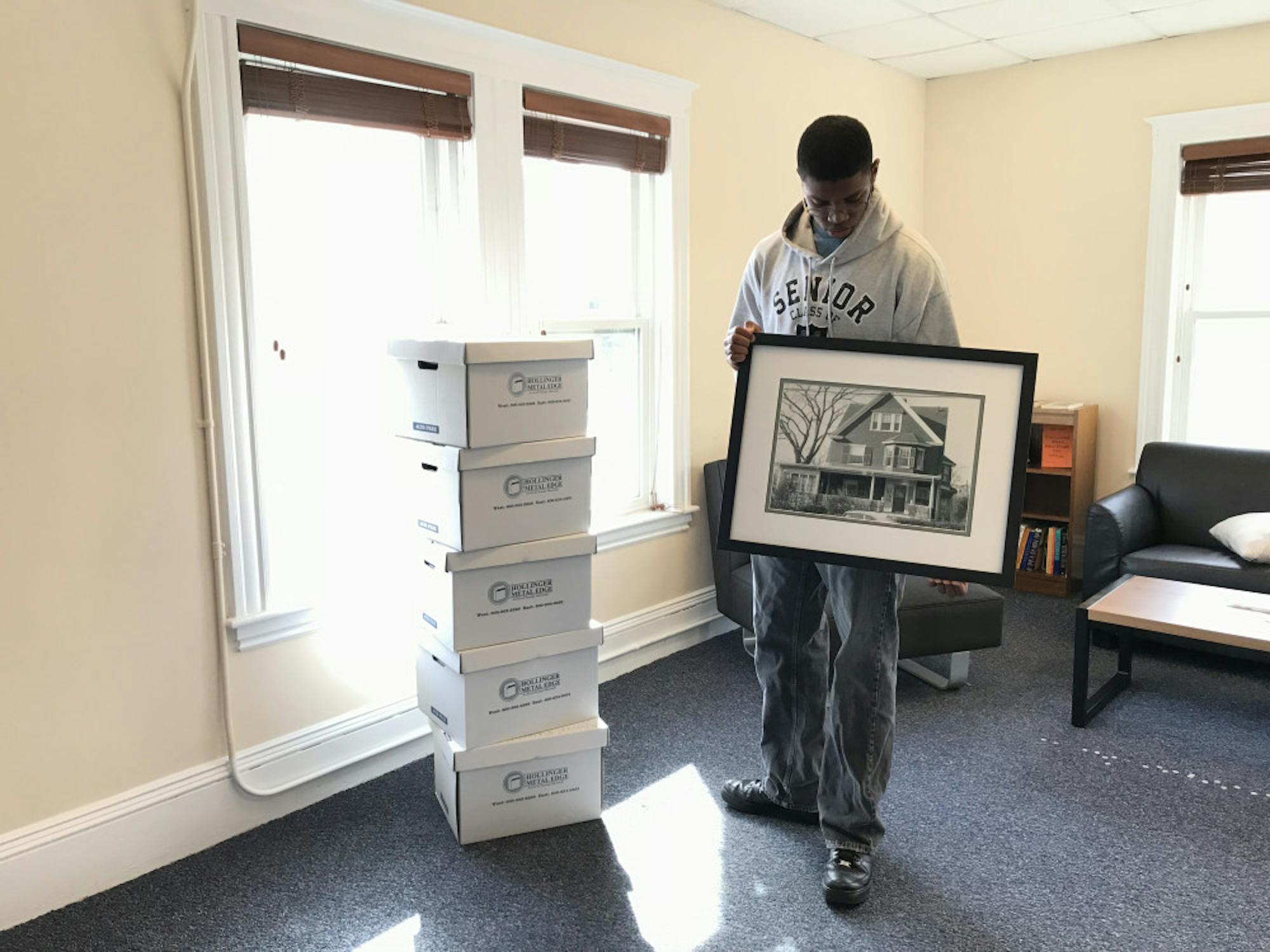The Latino Center will submit pieces of its history to the Tufts Digital Collections and Archives (DCA) in the coming weeks in celebration of its 25th anniversary.
It has been 25 years since the Latino Center was founded in 1993, meaning that when Latino Center intern Khalil Payton walked into work last fall, he was tasked to go through 25 years' worth of loose paper documents, photographs, news clippings and email memos.
In arranging these materials, Payton, a junior, and Latino Center Director Julián Cancino said they hope to keep a reserve where materials can be kept in fire-proof and temperature-controlled rooms for future students to find.
“It’s very easy to see no one started to keep [records] ... about the Latino students until Rubén [Stern, former director of the Latino Center] came and actually kept it in the center,” Payton said. “I can’t find any information about the former Hispanic American Center and anything leading up to it; the best we have is a few articles about the Hispanic American Society, demanding they get their own center.”
Under Stern, who founded the Center, visitors could discover the Center's past by simply knocking on his office door. Cancino said that now, he wants to ground the Center in its history in order to see into its future.
“[Stern] was able to create a lot of this history, but also preserve it," Cancino said. “I think that a lot of the work that he did [through paper documents] are really the way that he was planning the program and ... serving the Latino community in the greater Tufts community.”
Among some of the items Stern saved was an issue of The Primary Source, a former student-run journal of conservative thought, with a picture of him on the first page. At the time, the establishment of what is now known as the Group of Six was opposed and seen as a barrier to “multicultural conversation” -- much like, Cancino added, how safe spaces on campus are conceptualized today.
Throughout years past, the making of the Latino Center has been told in various formats -- for the Center's 20th anniversary in 2013, the Latino Center held a gala with guest speakers, including former Dean of Students Bobbie Knable, who presided over its founding, and alumni. In addition, the Center screened Roberto Arevalo’s documentary about Latino students at Tufts called "Latinos on Campus" (2010) and displayed a gallery of the Center called “Establishing Identity: the 20th Anniversary of the Tufts University Latino Center” in the Slater’s Concourse Gallery.
Cancino and Payton are working with Director and Chief Curator of University Art Galleries Dina Deitsch, who wants to continue to use the gallery spaces for community engagement.
"I think [the Center has] been holding a lot of extra weight from becoming gathering spaces for a lot of students' concerns about immigration issues, about anxiety, about acceptance, about our political situation," Deitsch said. "I think right now these places are incredibly important so anything we can do to help support and raise awareness of them would be great."
For DCA Director Daniel Santamaria, the Center’s submission is only a part of a broader project to maintain an institutional history of Tufts that includes student efforts in its narrative — not just the administration or higher-level offices. In an event on March 14, the DCA held a “Drop Off Day” that encouraged student organizations to donate any records they wanted to preserve.
Currently, the DCA receives more content from the 3Ps umbrella theatre organization and other drama productions than from any other student groups, according to Santamaria.
“[The lack of submitted student group documentation] is kind of a natural thing, because it’s not necessarily the thing that’s forefront on students' minds to think about how they’re documented for posterity,” Santamaria said. “But if we get [only] the record of the administration, that doesn’t tell the whole story of what’s happening at Tufts.”
CORRECTION: The headline of this article has been updated to reflect that the DCA are not part of the Tisch Library administration.
Celebrating 25-year anniversary, Latino Center donates archives to Digital Collections and Archives

Khalil Payton, intern at Tufts Latino Center, stands next to 25 years of archival material and holds a picture of Bolles House, built in 1900 and home of Tufts’ first Chaplain, The Reverend Edwin Cortlandt Bolles.





